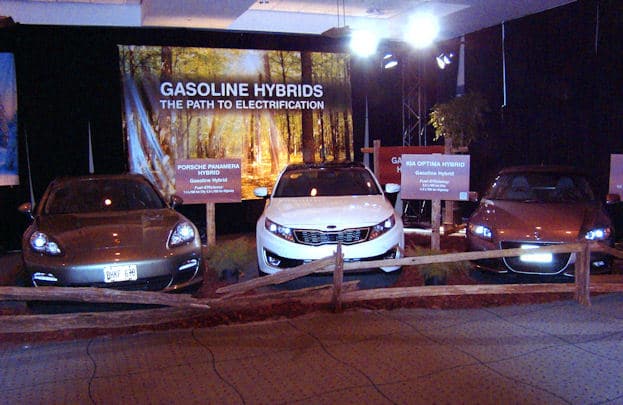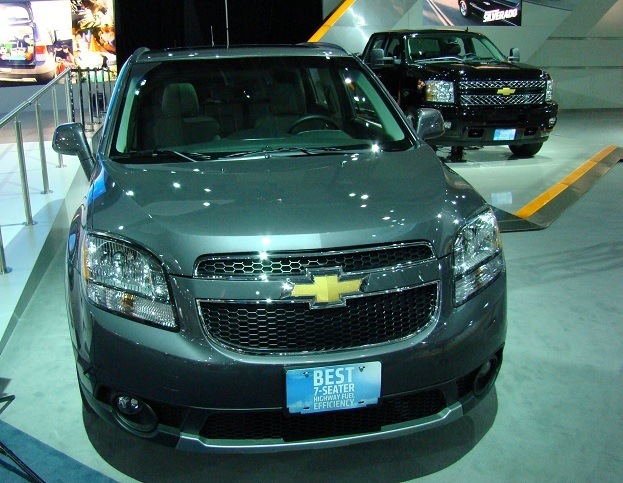More expensive and effectively multiplying the amount of vehicle maintenance for a single owner or household, owning more than one car is simply not a reality. In the recent state where economics have hit motorists and their family’s hard in the wallet, we are encouraged to live as small as possible. However, there are also many situations where a single car or truck simply cannot suffice in maintaining a proper living.
Logistically, multiple car ownership can best serve the daily travels where two or more licensed motorists are present. For the weekend warrior or family armies trekking on vacation, a large vehicle could be an excellent buy. In the case of large families or for those bringing a trailer load of amenities on their venture, a large truck or sport utility vehicle may be appropriate.
Ideal for certain times when towing and cargo capacity needs to be at a premium, the hulking mass of vehicle in more traditional everyday commuting is a plain, simple gas-guzzler. More vehicle than needed during the standard workweek but necessary for family adventure, the available opportunity to add a second vehicle to the driveway has one distinct advantage for economizing. It might make sense for some families to buy a second smaller vehicle either for regular commuting or single person travel. A possible savings of about 10 miles per gallon or more (depending on the variation of car and truck), the annual fuel economy savings would go a long way to affording family pleasure.
Using the 2012 Chevrolet line-up as an example, multiple car household with an SUV and car can benefit substantially through smart driving. Using an average annual driving distance of 15,000 miles, the 2012 front-wheel driven Chevrolet Suburban achieves 17 mile per gallon in fuel consumption equating to a yearly gas cost of about $3,450. However, a 2012 Chevrolet Cruze with a 1.4 liter engine and 6-speed manual records fuel economy of 30 miles per gallon on average for an annual gasoline cost of $1,950. A $1,500 difference, the cost savings for using the Cruze for standard commuting can actually make a second-car household fairly economical.
Apart from gasoline, the second largest annual expense incurred through vehicle ownership is insurance. Through multi-vehicle ownerships, several auto insurance companies offer multi car insurance deals that can ease the overall cost. Such as the case with acquiring any vehicle coverage, it is best to shop around for multi car insurance policies since some companies may offer greater rates for two or more automobiles. With some auto coverage plans, the first and second car can each benefit from insurance savings.
With some financial upsides to multiple car ownership, there is ultimately a higher overall cost proving to be quite a downside. There are unique concerns relating to liability when it comes to multi car ownership. Fans of the A&E show Parking Wars would be familiar with parties that have suddenly approached their vehicles in shock that an immobilization device (or boot) has been applied to their car. In some of those instances, the owners of the vehicle who are booted find out their primary ride has been booted due to outstanding violations relating to a secondary car. Clearly an example for where parties in multi-car ownership
In the future where high technology-connected vehicles will become the norm rather than a coming-of-age trend, the multiple car ownership could allow any licensed driver to adapt quickly to whichever car or truck they are handling. Driving position, music tunes and even GPS information could be instantly customized to the individual motorist through the detection of a keychain device. Technology such as that profiled within the Ford MyKey system would also comprehensively safeguard newer drivers regardless to the vehicle they’re piloting.
The choice to plunge into multiple car ownership is a decision that will indeed depend on lifestyle (as well as the fact an owner can afford the real estate to park more than one vehicle).
Information source: Ford Media, Fueleconomy.gov
Photo source: Chris Nagy



